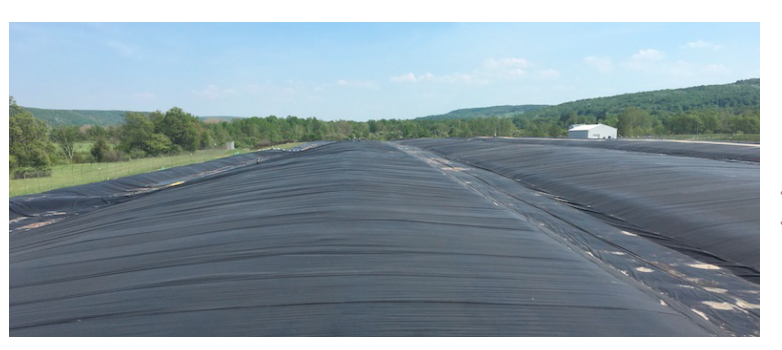- Understanding the Role of Geomembrane Liners in Waste Management
- Innovations in Geomembrane Liners for Water Management
- Geomembrane Liners: A Comprehensive Guide
- The Future of Geomembrane Liners in Civil Engineering
- Geomembrane Liners: Enhancing Landfill Stability
Manager:
WhatsApp:+86 177 0135 2670
Tel:+86 177 0135 2670
Email:marketing@okorder.com
Address:3rd Floor, No.2 Building, No.1 Sanlihe Road
THE PROTECTIVE EMBRACE OF BITUMINOUS GEOMEMBRANE: A SHIELD FOR OUR ENVIRONMENT
In the intricate world of geosynthetic materials, a BGM emerges as a silent sentinel whose role is to contain and manage various fluid and gas hazards. This versatile and reliable synthetic material has become an indispensable component in modern engineering projects, where the need for impermeable barriers is paramount. The purpose of this section is to explore the applications of BGMs, their benefits, as well as the science behind their resilience.
THE ESSENCE OF BITUMINOUS GEOMEMBRANE
Bituminous geomembranes are one type of geosynthetic material that serves as a durable and flexible barrier against fluid migration. They are widely used in landfill liners, mining operations, and also as pond and canal liners due to their low permeability. For environmental containment solutions such as these, their flexibility in conforming to irregular surfaces combined with resistance to a wide spectrum of chemicals makes them favorable choices.

DURABILITY AND PERFORMANCE: A CLOSER LOOK
The ability of BGM’s performance under harsh environments speaks volumes about its resilience. Studies have shown that BGMs have high strength, elongation, puncture resistance and soil interface shear resistance. This explains why they are appropriate for applications like heap leach pads that come into direct contact with coarse drainage layers. A 4 mm thick BGM exhibited good resistance against leakage even during substantial gravel puncture when subjected through simulated heap leach pad loads indicating “sealing” interaction between bitumen and gravel.
TEMPERATURE DEPENDENCE AND SHORT-TERM VIABILITY
It is crucial to investigate how BGMs perform over a wide range of temperatures especially in regions characterized by extreme climate variations. In particular studies on short term durability and performance focused on puncture at different temperatures were carried out on the sample BMGs showed that BGMs remain viable and intact for potential use in other geotechnical applications.
INNOVATIONS IN CANAL LINING AND WATER MANAGEMENT
BGMs have been used as an alternative to distressed concrete canal linings especially in areas with expansive clays. The material is preferred in their lining because it can be punctured by vegetation or rough substrates thus compatible with asphalt and concrete layers. For real-world applications, the BGM has shown high resistance to earthquakes at Milpo dam located in Peru which demonstrates its robustness.
LONG-TERM FIELD PERFORMANCE AND DURABILITY
Assessing the long-term durability of BGMs is essential for ensuring environmental protection. Researches have focused on degradation of BGMs when exposed to chemical solutions from solid waste and increased temperature. These studies provide an insight about how much longer can these materials last if they are persisted for long time as a treatment system of waste containment. Ospédale dam built in 1978 at France has remained watertight after 40 years thus indicating that BGM’s service life is very long.
CUSTOM DESIGNED APPARATUS FOR AGING TESTS
To simulate aging conditions on site, a custom-designed apparatus was employed to age a 4.8mm thick elastomeric BGM under single-sided exposure to synthetic leachate at different temperatures. This method closely simulates the field condition under which BMGs will be exposed chemically unlike traditional double sided immersion tests do not reflect this . These results are expected to contribute towards a better understanding of how materials behave under real-life circumstance.
Hydro constructions
Bitumen has been used for waterproofing since ancient times and its employment in contemporary hydraulic structures has been widely explored. BGMs have been utilized in many hydraulic works, including dams, reservoirs, and irrigation channels to show the efficiency of their use as well as durability. One such example is Milpo dam in Peru which exhibited high resistance to earthquakes by BGM while Ospedale dam in France after 40 years of service had not lost any watertightness.
Conclusion
The bituminous geomembranes provide a more reasonable option from traditional geosynthetic materials that are durable, flexible and impermeable serving several geotechnical and environmental purposes. They make a worthy investment for geo synthetics industry since they can survive harsh conditions and also have proven long term performance. Research on these factors may help inform better practice with regard to BGMs being employed more extensively in future construction and preservation efforts within our environment. This journey we take with bituminous geomembrane is not only the journey of our collective growth but an enriching narrative. In moving forward, let us carry the promise of the BGM; one that will lead us to a brighter future through sustainable practices.
- Previous:The Protecting Hug of 30 mil PVC Geomembrane: An Environment’s Shield
- Next:Pioneering Pathway Of Conductive Geomembrane: The Inception Of A New Era In Leak Detection






